|
A senior Defense Department official has stated that at least one-third of the prisoners at Guantanamo are completely innocent of any wrongdoing.
Tragically, many of the prisoners had put themselves in harms way to fulfill a sacred religious duty. Islam ordains charitable work. Many of these men are teachers. They are pious men bound by a great tradition to make sacrifices on behalf of other human beings
The PRISONERS
F.P.S.S would like to acknowledge Project Kuwaiti Freedom as the source of this information.
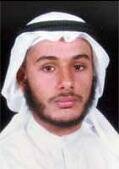 |
Fawzi Khaled Abdullah Fahad Al Odah -- is a 25 year-old teacher who once spent his summers traveling in poor nations to educate less fortunate students. Fawzi and his family have built libraries and wells in Africa. They’ve sponsored orphans in countries like Albania. After September 11th, Fawzi decided to remain in the Afghanistan-Pakistan region to help the flood of refugees. His family soon lost contact and did not learn that he had been taken prisoner until January 2002, when they heard he was being held by the U.S. Fawzi has no weapons training or experience. 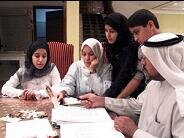 On May 7, 2002, Fawzi sent his parents a letter saying, “Now I am detained by the American forces and investigations are still going on…I will be established as innocent soon, and then I will return back to you…” Fawzi’s father, Khalid Al-Odah, is the head of the Kuwaiti Family Committee, an organization formed by relatives of the detainees to advocate for their just treatment under the U.S. judicial system. The elder Al-Odah is a former member of the Kuwaiti Air Force, who trained with American servicemen in the United States and flew missions with them as an ally in the Persian Gulf War of 1991. On May 7, 2002, Fawzi sent his parents a letter saying, “Now I am detained by the American forces and investigations are still going on…I will be established as innocent soon, and then I will return back to you…” Fawzi’s father, Khalid Al-Odah, is the head of the Kuwaiti Family Committee, an organization formed by relatives of the detainees to advocate for their just treatment under the U.S. judicial system. The elder Al-Odah is a former member of the Kuwaiti Air Force, who trained with American servicemen in the United States and flew missions with them as an ally in the Persian Gulf War of 1991. |
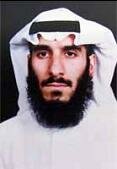 |
Omar Rajab Mohammad Rajab Amin -- is an agricultural supervisor for the Care Houses department of the Kuwaiti Ministry of Social Affairs and Labor. In 1993 he began working for Kuwait’s Combined Relief Committee, assisting refugees in Bosnia-Herzegovina. He married a Bosnian woman in 1994, returning to Kuwait in 1998 where he lived happily with his wife and four children. When the refugee situation arose in Pakistan and Afghanistan in the fall of 2001, Omar collected money and took a short leave of absence from work to assist the refugees. He intended to return to Kuwait quickly as his five-year old son was scheduled for a heart operation. He had never been to Afghanistan or Pakistan before, and most likely tried to flee with the other refugee workers when the violence erupted. Meanwhile, his son was operated on successfully and his wife was pregnant with their fifth child. In a Red Cross letter he wrote from Guantanamo, he says, “My dear wife, I pray that you are well and in good health and I hope that you will receive this message after you have safely given birth to the newly born baby…Please be advised that my imprisonment will not be for long. I have always done good for those who are in distress.” |
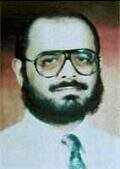 |
Fouad Mahmoud Al Rabiah -- is an Aviation Engineer for Kuwaiti Airlines and a father of four children. He is an international graduate of Embry-Riddle Aeronautical University and was granted honorary citizenship by the Chamber of the Daytona Beach-Halifax area. He worked on a rescue campaign in Kosovo in 1988 as a Red Crescent humanitarian aid worker and in 2000 he delivered a consignment of medicine to Bangladesh for patients suffering from kidney disease. In 2001, he delivered more than 30 trucks of aid from Meshad, Iran to refugees on the Afghani-Iranian border and to hospitals in Kandahar. In a Red Cross letter he wrote, “As you know, I traveled to deliver rescue materials…the situation in this country turned upside down overnight, and now every Arab citizen has become a suspect.” The 44 year-old Fouad suffers from several serious health conditions. |
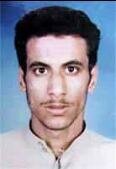 |
Nasser Nijer Naser al Mutairi -- is a 25 year-old teacher and minister who worked for the Ministry of Education in Kuwait. He left his home in October of 2000 in order to minister in the small mosques and schools of Afghanistan 's poorer regions. He is a member of the Tableeghi sect, an order of apolitical and peaceful missionaries. In October of 2002, the Kuwaiti Ministry of Foreign Affairs informed Nasser's family that he had taken ill and was in a hospital in Kandahar. It is not known why or how he was deported from the hospital to Guantanamo Bay. In fact, very little is known of his condition, other than that he has asked his parents to contact the Red Cross on his behalf. |
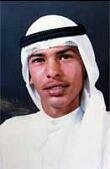 |
Khalid Abdullah Mishal al Mutairi -- was working at a primary school as a messenger and planned to return to school in 2001. His family has funded agricultural projects in Pakistan, bought farms for the poor in India, and supported an orphan girl in Bosnia. In 2001, Khalid traveled to Pakistan to help repair a mosque his family had funded. The last time his family spoke to him, he said he wanted to assist the Afghani refugees and that he would be home by December, 2001. It is not known why or how he ended up in detention in Guantanamo Bay. |
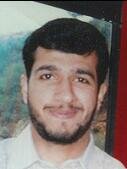 |
Abdullah Kamal Abdullah Kamal Al Kandari -- is a mechanical technician and father of four. In 2001, he traveled to the Afghani-Pakistani border to help in the refugee relief. The last time he spoke to his family in October of 2001, he told them that “all Arab citizens are wanted, whether they are warriors or members of relief agencies.” In a Red Cross letter, he wrote, “I would like news of my family, especially of my pregnant wife. Did she give birth yet? …I will be back soon, [it] is only a matter of time until they find me innocent and learn that I did not fight, but I came to help the poor and needy and that I was trapped in Afghanistan against my will…Please be advised that I do not know where I am, but the authorities say the state I am in is Cuba.” |
|
|
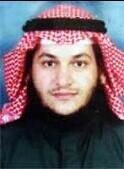 |
Abdulaziz Saver Owain al Shammari -- is a 30 year-old teacher and a father of two. He departed Kuwait for Pakistan in October, 2001 to start up an operation with local aid groups to help the refugees. He contacted his family, saying that the situation was unstable and that he would return home as soon as he had finished his mission. The next they heard from him was a Red Cross letter from Guantanamo. “Dear father,” he wrote, “I have informed them about everything relating to me and that I only went to Afghanistan to teach, and that I have nothing to do with the war. They said that they are going to verify these facts and, if they are true, they will release me. Every time, they say they are going to release me soon… “I have gone on a hunger strike for 27 days and I will continue the strike indefinitely. Further, I am not drinking water or speaking for four days until they set me free or take me to court for trial in order to obtain all my rights. Or I will die, as I can not stand life in this place.” Abdulaziz is believed to still be alive in the Camp Delta detention facility in Guantanamo Bay. |
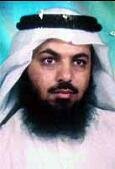 |
Mohammed Fenaitel Mohamad Al Daihani -- was an auditor in the Kuwaiti Audit Bureau and a father of six children. In 1993, his family funded the building of a well in the Philippines and, the following year, he purchased a farm in Indonesia for a local orphan village to use for food. In 1995, he funded the construction of a mosque in the republic of Benin. On September 9, 2001, Mohammad left Kuwait to use the two remaining weeks of his annual leave to provide aid to the Afghan refugees settling on the border after fleeing the harsh conditions of life under the Taliban. After September 11th, he contacted his family to say that the borders had been closed and only women, children, and the elderly were being allowed to leave. He contacted them later, saying “I am currently detained by the American army. They know that I was in Afghanistan to dig water wells and that the borders were closed, so I could not get out of the country. Yet they are still investigating.” His family has no means of income while he is detained, and he worries about their suffering. |
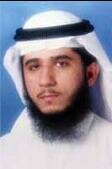 |
Fayiz Mohammed Ahmed Al Kandari -- is a 27 year-old student who went to render aid in Afghanistan during his 2001 summer vacation. It was his belief that helping others might honor his grandmother, who had just died, and bring better health to his mother, who is suffering from cancer. After being captured by U.S. forces, he wrote in a message to his family that an American investigator had questioned him and found nothing against him, and he believed he would soon be freed. He wrote in a Red Cross letter, “If the construction of a mosque…or the digging of a well is the sin that makes me a detainee, then I willingly accept my detention.” |
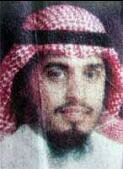 |
Adil Zamil Abdull Mohssin Al Zamil -- worked in the Kuwaiti Public Authority for Housing Care, and is the father of 8 children. Since their father has been detained, they have had no means of income. Adil’s father is too ill to care for his grandchildren. It is believed that Adil was arrested in Pakistan at the end of February, 2002 by a group of Pakistani and U.S. personnel, though the reason for his arrest is not known. |
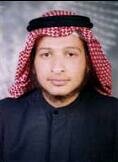 |
Saad Madai Saad Al-Azmi -- 24 traveled to Kabul, Afghanistan in July 2001 to supervise charitable projects, including the construction of mosques. After the bombing of Afghanistan began following September 11th, Saad left for Pakistan where he stayed for about a month. He then traveled to Lahore, Pakistan for several weeks, then on to Karachi in January in order to arrange transportation back home to Kuwait. For unknown reasons, he was detained in Pakistan and eventually was taken by the U.S. to Guantanamo. |
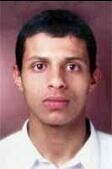 |
Abdullah Saleh Ali Al Ajmi -- is a 25 year-old lance corporal in the Kuwaiti army. He is a member of the apolitical Tableeghi sect. His family says that he decided to take a leave of absence from the army in order to “rescue the needy and the poor” in Pakistan. A month after he left Kuwait, he contacted his family to tell them that he was successfully carrying out aid work. The next his parents heard from him was a Red Cross postcard from Guantanamo. |
|